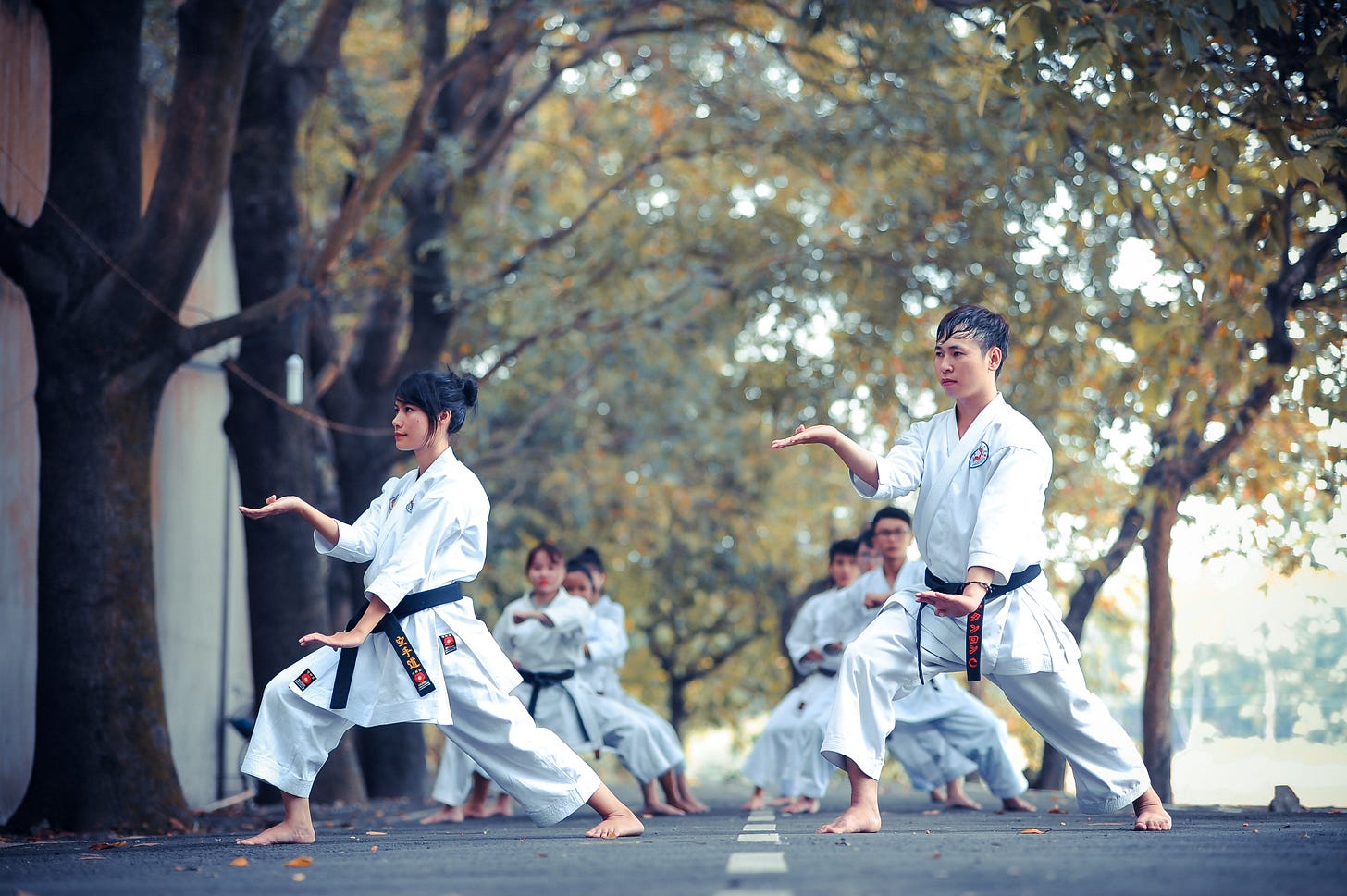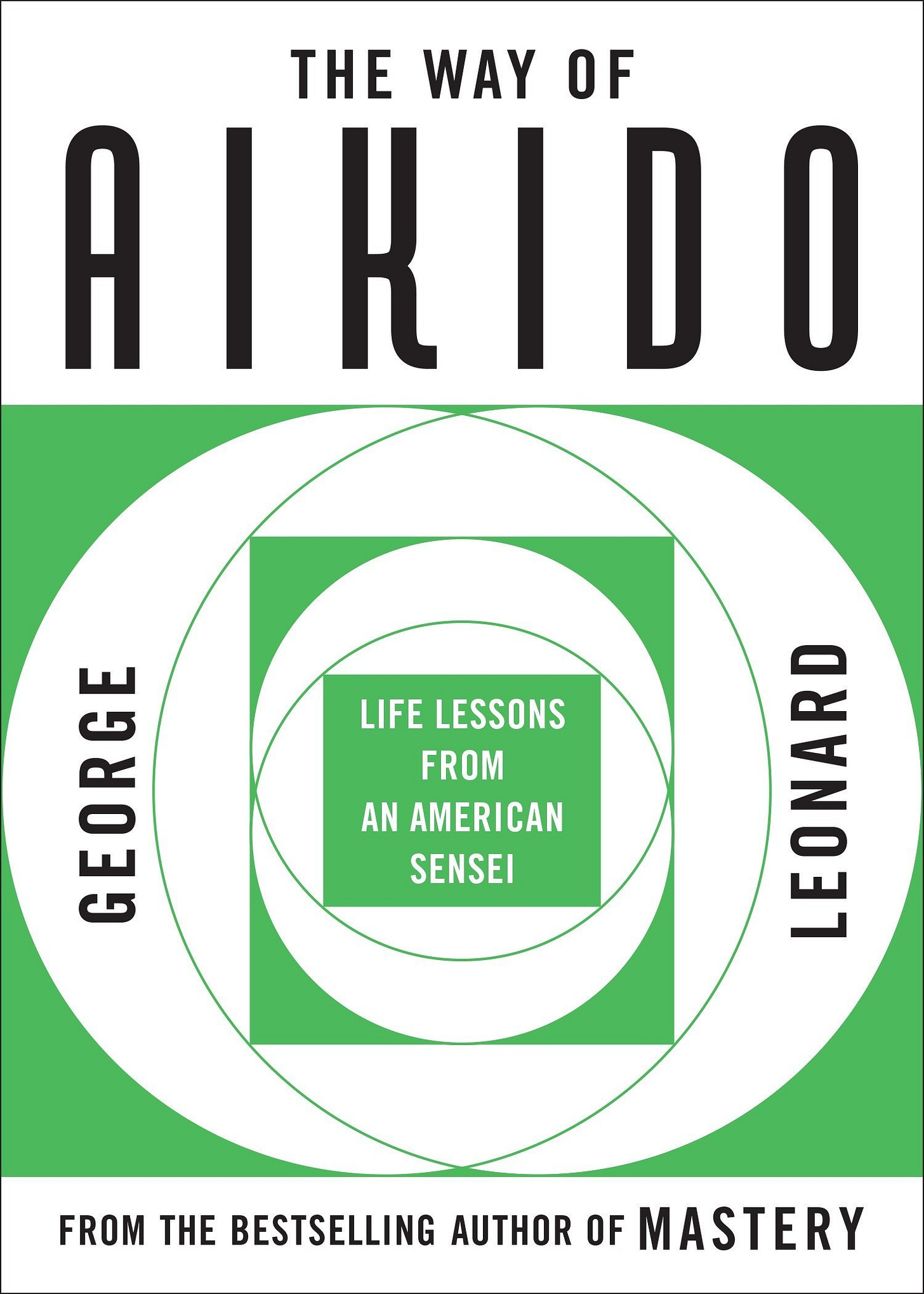
Eastern philosophy has long been an immense fascination of mine. Reading a good book on Taoism, Zen or one of the other sacred pieces of literature helps me maintain a sense of equanimity and perspective during times of immense chaos.
Years ago, I was introduced to the Eastern martial art of Aikido while visiting a co-working space in Sacramento. In hearing about it, I was immediately intrigued.
My curiosity led me to seek out a book focusing on the theme. That’s how I stumbled upon “The Way of Aikido: Life Lessons From an American Sensei” by George Leonard. Written twenty years ago, Leonard takes readers on a fascinating journey into the tenets of aikido and their relevancy to our daily lives. Thought-provoking, engaging, and filled with deep perspectives, it highlights why our daily endeavors should be approached with a sense of compassion and peace.
A physical martial art practice, Aikido is in its essence spiritual. And while closely aligned to the ancient samurai tradition, it seeks what it’s founder Morihei Ueshiba O-Senseirefers to as “the loving protection of all beings.”
Contrary to the “kick and punch” nature of the martial arts world, Aikido is about rhythmically aligning with your opponent’s energy in order to establish control. It’s here where this philosophy offers a profound set of life lessons that we can take into our daily world. As the descriptive on the Amazon page notes:
“This book won't replace work in a dojo, but it will allow you some insight into how Aikido masters think.”

Author George Leonard was an American writer who focused primarily on human potential (his book Mastery: The Keys to Success and Long-Term Fulfillment is another favorite of mine).
He was President Emeritus of the Esalen Institute, the non-profit American retreat center and intentional community in Big Sur, California as well as past-president of the Association for Humanistic Psychology. He also served as a United States Army Air Corps pilot and held a fifth-degree black belt in aikido. At 86 years old, Leonard made his transition on January 6, 2010, after a lengthy illness.
In “The Way fo Aikido.” Leonard remarks:
“When confronted by any attack or problematic incoming energy, the aikidoist doesn’t strike, push back, pull, or dodge, but rather enters and blends. That is, he or she moves toward the incoming energy and then, at the last instant, slightly off the line of attack, turning so as to look momentarily at the situation from the attacker’s viewpoint. From this position, many possibilities exist, including a good chance of reconciliation.”
Chapter 6: A Transformative Ordeal was particularly striking for me. He says:
“More than ever I was convinced that the philosophy of aikido has something valuable to offer every man, woman, and child on this planet: increased options, positive changes of context, a practical understanding of the power of love, and finally a spiritual path toward personal and world peace.”
Towards the latter part of the book, he concludes with a theme that’s currently front and center in my mind as the Coronavirus pandemic is currently impacting untold numbers of people throughout the world.
Leonard writes:
“All of us, to one degree or another, know that just to be alive is to be under the sword. We all face death or the possibility of serious injury or loss; we just can’t predict when it will come. We know this and we forget. Again and again, we forget. And maybe it’s somehow necessary for us to take refuge in the security of our forgetfulness. But to deny the sword, to deny the inevitability of death makes it easier for us to squander the life we are given. To acknowledge that we are under the sword is to realize that we are always in the moment, that this life is an incredible gift, and that it is altogether too short.”



